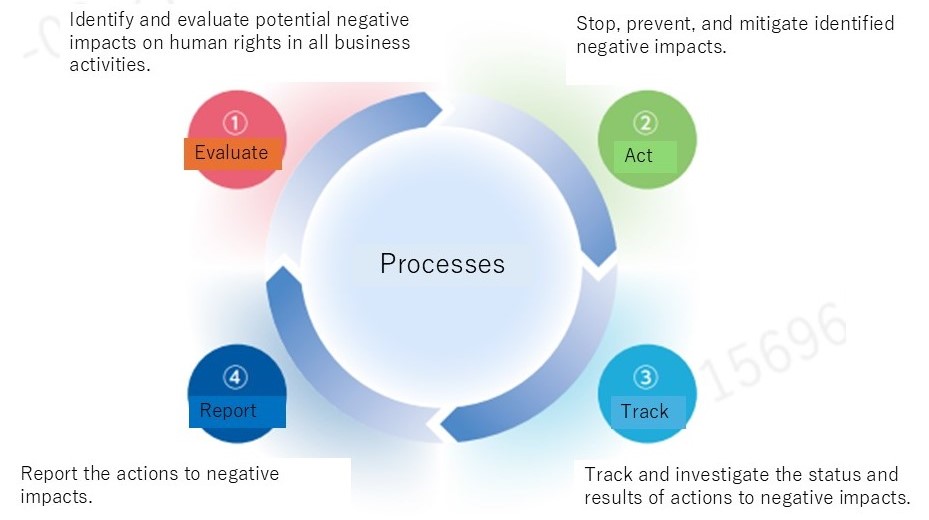As globalization advances, the social impact of corporate human rights issues is becoming increasingly visible. In recognition of its corporate social responsibility, our group established a Human Rights Policy in 2018. In November 2021, we fully revised this policy into the Group Human Rights Policy, reflecting both domestic and international developments, and are actively promoting our initiatives.
This policy is aligned with international standards, including the “Universal Declaration of Human Rights,” “International Covenants on Human Rights,” “UN Guiding Principles on Business and Human Rights,” “ILO Declaration on Fundamental Principles and Rights at Work” and “Children’s Rights and Business Principles.” We will continue to enhance our efforts to respect human rights in accordance with these international standards.
Key issues related to human rights are discussed and reviewed by the Group Sustainability Committee. Decisions are made at the Group Executive Committee level and subsequently reported to the Board of Directors, which oversees the status of responses and actions taken.
In addition, human rights awareness and education activities within our banking group are promoted by the Group Human Rights Promotion Committee.
Our banking group conducts human rights due diligence targeting corporate customers and employees, aiming to identify, prevent, and mitigate significant human rights issues.

For group employees, we have established consultation desks such as “Harassment and Human Rights Consultation Desk” and “Compliance Hotline.”
Corporate Customers:
・ In accordance with our bank group’s “Responsible Investment and Lending Policy” and “Equator Principles” adopted by our bank, we conduct human rights due diligence focused on key issues such as forced labor, child labor, and human trafficking.
Individual Customers:
・To ensure that customers with disabilities, elderly customers, and those with injuries or illnesses can use our services with peace of mind, we offer a variety of support services, including writing and reading assistance, communication through writing and sign language, and remote sign language interpretation services.
・We maintain policies and systems to protect personal information and are actively working to prevent financial crimes and money laundering.
Employees:
・ Since 2022, our banking group has conducted annual human rights due diligence across the organization to identify key human rights issues and implement improvement measures
Number of respondents in FY2024:5,681
・Human rights awareness training through e-Learning (for all employees)
Number of participants in FY2024 :7,068
・ Training in harassment and human rights (for new graduates, mid-career hires, and newly promoted employees)
・ Harassment prevention training for all employees
・Promotion of workplace practices aimed at preventing and improving excessive or long working hours
・Establishment of “Group Customer Harassment Policy” and partial revision of “Group Human Rights Policy” (April 2025)